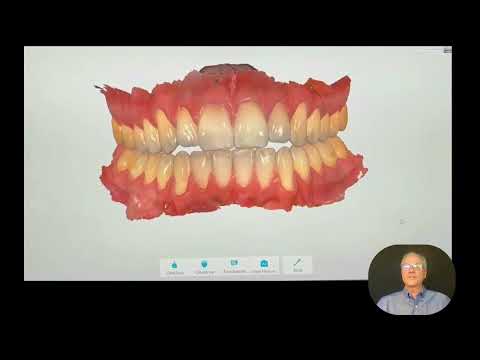
Dental Orthotics vs. Night Guards: What’s the Difference?
If you’ve been dealing with jaw pain, headaches, or symptoms of temporomandibular joint disorder (TMJ), you may have heard about two common treatment options: dental orthotics and night guards. While both are oral appliances designed to be worn in the mouth, they serve very different purposes. At Peninsula Center of Cosmetic Dentistry in Mountain View, CA, we often get asked: what’s the difference between a dental orthotic and a night guard? Let’s break down TMJ and bite relief options.
What is a Night Guard?
A night guard, sometimes called an occlusal guard or bite guard, is a protective device typically worn while you sleep. Its main purpose is to prevent damage to the teeth caused by bruxism (teeth grinding) or clenching. Made from durable plastic materials, a night guard creates a physical barrier between your upper and lower teeth, absorbing the pressure and reducing wear on your enamel.
Night guards are highly effective for people who grind their teeth at night, helping to:
- Prevent tooth wear, fractures, and sensitivity
- Reduce strain on the jaw muscles
- Decrease the risk of future dental work caused by grinding
- Minimize morning headaches caused by overnight clenching
However, while night guards can protect your teeth, they don’t actively reposition the jaw or address underlying issues with bite alignment or TMJ dysfunction.
What is a Dental Orthotic?
A dental orthotic, on the other hand, is a more specialized appliance custom-designed to correct the position of the jaw and provide therapeutic relief for TMJ-related symptoms. Unlike a standard night guard, a dental orthotic is created based on a detailed analysis of your jaw function, bite alignment, and joint health.
At Peninsula Center of Cosmetic Dentistry, we use advanced 3D imaging and jaw tracking technology to precisely fabricate dental orthotics that fit your unique anatomy. These appliances are designed to:
- Reposition the jaw into a more optimal, relaxed position
- Reduce inflammation and pressure on the TMJ
- Alleviate muscle tension and spasms
- Prevent grinding and clenching behaviors
- Promote long-term healing and stabilization of the jaw joints
While some patients wear dental orthotics primarily at night, others may need to wear them during the day depending on the severity of their condition.
Key Differences Between Dental Orthotics and Night Guards
Which One Do You Need?
The right appliance for you depends on your specific symptoms and diagnosis. If you simply grind your teeth but don’t have TMJ issues, a night guard may be sufficient to protect your teeth. However, if you suffer from chronic jaw pain, clicking, locking, headaches, or facial soreness, a dental orthotic may be the more appropriate solution.
At Peninsula Center of Cosmetic Dentistry, our experienced team performs a thorough evaluation to determine the root cause of your discomfort. We don’t believe in one-size-fits-all solutions. Our goal is to create a personalized treatment plan that addresses both your symptoms and their underlying causes.
Schedule a TMJ Consultation in Mountain View
If you’re unsure whether you need a night guard or a dental orthotic, we’re here to help with TMJ treatment in Mountain View. Contact Peninsula Center of Cosmetic Dentistry in Mountain View, CA, to schedule a comprehensive TMJ consultation. We’ll carefully evaluate your condition and recommend the most effective treatment to relieve your pain and protect your oral health. Don’t let TMJ symptoms hold you back from living your best life.

